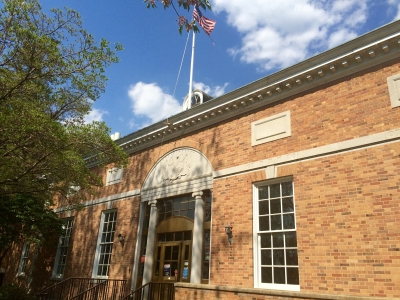Accessibility Tools
- Content scaling 100%
- Font size 100%
- Line height 100%
- Letter spacing 100%
Morag Fraser
The ABR Podcast
Released every Thursday, the ABR podcast features our finest reviews, poetry, fiction, interviews, and commentary.
Subscribe via iTunes, Stitcher, Google, or Spotify, or search for ‘The ABR Podcast’ on your favourite podcast app.
‘Where is Nancy?’ Paradoxes in the pursuit of freedom
by Marilyn Lake
This week on The ABR Podcast, Marilyn Lake reviews The Art of Power: My story as America’s first woman Speaker of the House by Nancy Pelosi. The Art of Power, explains Lake, tells how Pelosi, ‘a mother of five and a housewife from California’, became the first woman Speaker of the United States House of Representatives. Marilyn Lake is a Professorial Fellow at the University of Melbourne. Listen to Marilyn Lake’s ‘Where is Nancy?’ Paradoxes in the pursuit of freedom’, published in the November issue of ABR.
Recent episodes:
Indiana’s State Route 67 is a highway straight out of Alfred Hitchcock, an open-skied strip through flat country, bordered by desultory malls, a ‘drive-thru’ Taco Bill, a county jail and sheriff’s department, a pedimented Walgreens and – most intriguing – the Mooresville ‘Lost Inn Motel’, and the ‘Lost Name Steak-house and Saloon’. (Google r ...
The Childhood of Jesus by J.M. Coetzee & The Round House by Louise Erdrich
November in America signals a time to gather in, take stock and breathe a little. The elections are done by the end of the first week. Thanksgiving beckons, the high holidays begin, media fever subsides – a little – and morphs into retrospective political analysis and projected anxiety about the future, especially, since 2008, the economic future.
... (read more)The Academy Award season is so given to hyperbole that it was a relief to read one critic not starry-eyed about Steven Spielberg’s Lincoln. Rex Reed, in the New York Observer, criticised the film for having ‘too much material, too little revelation and almost nothing of Spielberg’s reliable cinematic flair’. I don’t agree for a moment, but Reed’s comment is an interesting pointer to the prevailing expectations of twenty-first-century American cinema: keep it simple (or simply incoherent), deliver a message, and wrap it all up with lavish cinematography.
... (read more)Michael O’Connell: The Lost Modernist by Harriet Edquist
The Princeton Post Office, as befits this famed university town, has a certain grandeur. It is small – Princeton is a village after all – and modest in its proportions, but grand in aspiration. As you step through its panelled doors your gaze is drawn by the long parade of milk-glass and bronze lights towards the mural that adorns the far wall. Like the White House murals, it is lofty, but almost domestic in its depictions of American history, American hope, American mythology.
... (read more)Immediately after the mid-term elections in November, Barack Obama left for a long-planned G20 gathering in Seoul and for meetings with heads of government in the nation states of India, Indonesia, and Japan. Nothing remarkable, you think? Exactly what one expects a United States president to do? Not in America.
The right-wing blogosphere went berserk. Miche ...







